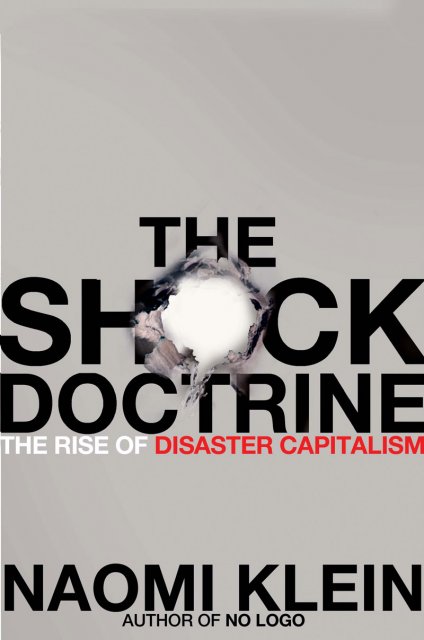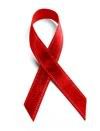Monday
Sep102007
Essential Reading: The Shock Doctrine
 Monday, September 10, 2007 at 5:58PM
Monday, September 10, 2007 at 5:58PM  Naomi Klein is on the move again, this time discussing and analysing the US security industry and disaster economy that has exploded after 9/11. Bigger than Hollywood and the music industry it has created a powerful impetus to perpetuate the fear of being injured, destroyed, or lost in havoc. The Shock Doctrine: The Rise of Disaster Capitalism is out on September 20th and we are looking forward with great interest to reading it. We've had the opportunity to read an excerpt in today's The Guardian and we are so far impressed.
-
Seen through the lens of this doctrine, the past 35 years look very different. Some of the most infamous human rights violations of this era, which have tended to be viewed as sadistic acts carried out by anti-democratic regimes, were in fact either committed with the intent of terrorising the public or actively harnessed to prepare the ground for radical free-market "reforms". In China in 1989, it was the shock of the Tiananmen Square massacre and the arrests of tens of thousands that freed the Communist party to convert much of the country into a sprawling export zone, staffed with workers too terrified to demand their rights. The Falklands war in 1982 served a similar purpose for Margaret Thatcher: the disorder resulting from the war allowed her to crush the striking miners and to launch the first privatisation frenzy in a western democracy.
-
"The bottom line is that, for economic shock therapy to be applied without restraint, some sort of additional collective trauma has always been required. Friedman's economic model is capable of being partially imposed under democracy - the US under Reagan being the best example - but for the vision to be implemented in its complete form, authoritarian or quasi-authoritarian conditions are required.
-
Until recently, these conditions did not exist in the US. What happened on September 11 2001 is that an ideology hatched in American universities and fortified in Washington institutions finally had its chance to come home. The Bush administration, packed with Friedman's disciples, including his close friend Donald Rumsfeld, seized upon the fear generated to launch the "war on terror" and to ensure that it is an almost completely for-profit venture, a booming new industry that has breathed new life into the faltering US economy. Best understood as a "disaster capitalism complex", it is a global war fought on every level by private companies whose involvement is paid for with public money, with the unending mandate of protecting the US homeland in perpetuity while eliminating all "evil" abroad.
-
In a few short years, the complex has already expanded its market reach from fighting terrorism to international peacekeeping, to municipal policing, to responding to increasingly frequent natural disasters. The ultimate goal for the corporations at the centre of the complex is to bring the model of for-profit government, which advances so rapidly in extraordinary circumstances, into the ordinary functioning of the state - in effect, to privatise the government".
-
Naomi Klein on The Guardians mini Shock Doctrine site.
Naomi Klein is on the move again, this time discussing and analysing the US security industry and disaster economy that has exploded after 9/11. Bigger than Hollywood and the music industry it has created a powerful impetus to perpetuate the fear of being injured, destroyed, or lost in havoc. The Shock Doctrine: The Rise of Disaster Capitalism is out on September 20th and we are looking forward with great interest to reading it. We've had the opportunity to read an excerpt in today's The Guardian and we are so far impressed.
-
Seen through the lens of this doctrine, the past 35 years look very different. Some of the most infamous human rights violations of this era, which have tended to be viewed as sadistic acts carried out by anti-democratic regimes, were in fact either committed with the intent of terrorising the public or actively harnessed to prepare the ground for radical free-market "reforms". In China in 1989, it was the shock of the Tiananmen Square massacre and the arrests of tens of thousands that freed the Communist party to convert much of the country into a sprawling export zone, staffed with workers too terrified to demand their rights. The Falklands war in 1982 served a similar purpose for Margaret Thatcher: the disorder resulting from the war allowed her to crush the striking miners and to launch the first privatisation frenzy in a western democracy.
-
"The bottom line is that, for economic shock therapy to be applied without restraint, some sort of additional collective trauma has always been required. Friedman's economic model is capable of being partially imposed under democracy - the US under Reagan being the best example - but for the vision to be implemented in its complete form, authoritarian or quasi-authoritarian conditions are required.
-
Until recently, these conditions did not exist in the US. What happened on September 11 2001 is that an ideology hatched in American universities and fortified in Washington institutions finally had its chance to come home. The Bush administration, packed with Friedman's disciples, including his close friend Donald Rumsfeld, seized upon the fear generated to launch the "war on terror" and to ensure that it is an almost completely for-profit venture, a booming new industry that has breathed new life into the faltering US economy. Best understood as a "disaster capitalism complex", it is a global war fought on every level by private companies whose involvement is paid for with public money, with the unending mandate of protecting the US homeland in perpetuity while eliminating all "evil" abroad.
-
In a few short years, the complex has already expanded its market reach from fighting terrorism to international peacekeeping, to municipal policing, to responding to increasingly frequent natural disasters. The ultimate goal for the corporations at the centre of the complex is to bring the model of for-profit government, which advances so rapidly in extraordinary circumstances, into the ordinary functioning of the state - in effect, to privatise the government".
-
Naomi Klein on The Guardians mini Shock Doctrine site.

Reader Comments